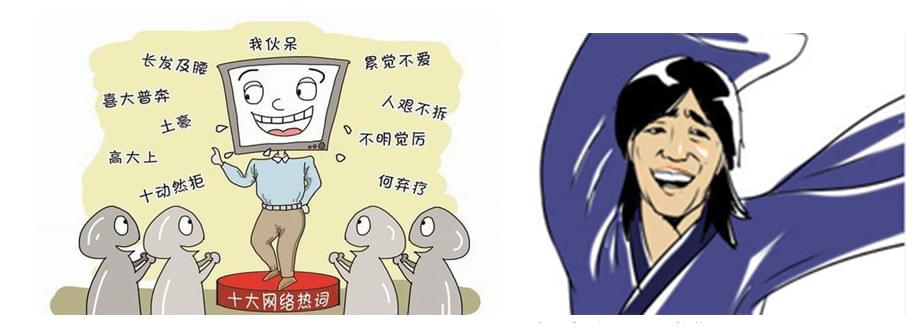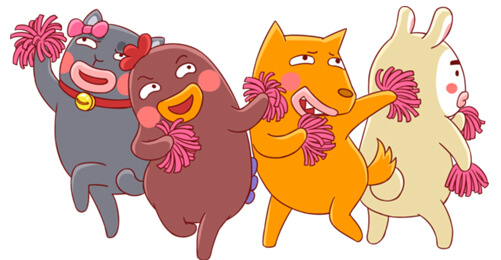I’m Thrilled to Death
2016-01-05 09:14:53
2541

The Chinese language traditionally utilizes four-character idioms called chengyu to communicate in a colorful way. The ancient chengyu form is far from being relegated to the dustbin; rather, many new chengyu are being introduced and assimilated into modern speech patterns via the community of Chinese web users called netizens.
These sayings retain the four-character format of the classical formbut are distinguished by their ironic, contemporary and sometimes political themes. Popular among Chinese youth, the new idioms may not be considered highbrow, but they offer a window into the humor, culture and concerns of China’s millennial generation.
A new favorite is xi da pu ben (喜大普奔), which conveys exaggerated enthusiasm and excitement, with a dose of political irony. The phrase is an amalgamation of four expressions commonly used (perhaps overused) in Communist Party language to describe public satisfaction with the Party’s policies:

xǐ wén lè jiàn
喜 闻 乐 见
meaning “a delight to see and hear”.
dà kuài rén xīn
大 快 人 心
meaning “ to the satisfaction of everyone”.
pǔ tiān tóng qìng
普 天 同 庆
meaning “universal rejoicing”.
bēn zǒu xiāng gào
奔 走 相 告
meaning “running around and telling everyone”.
None of these phrases would seem out of place on a Mao-era propaganda poster. Take the first character of each, string them together in a Chinese-style acronym, and the enthusiasm expressed is magnified to a farcical degree. The result is a hyperbolic idiom that might be translated as “news so wonderfully exhilarating that everyone is celebrating and spreading it around the world,” or “I’m thrilled to death (eye roll).”
You may not understand these Chinese new Chengyu very well currently, but if you take Hanbridge Chinese mandarin course online, you will know how to learn Chinese fast, and learn mandarin language online will not cost you much time. After a few days learning, I believe that you will know more Chinese catch words, these new Chinese Chengyu is just a piece of cake.











